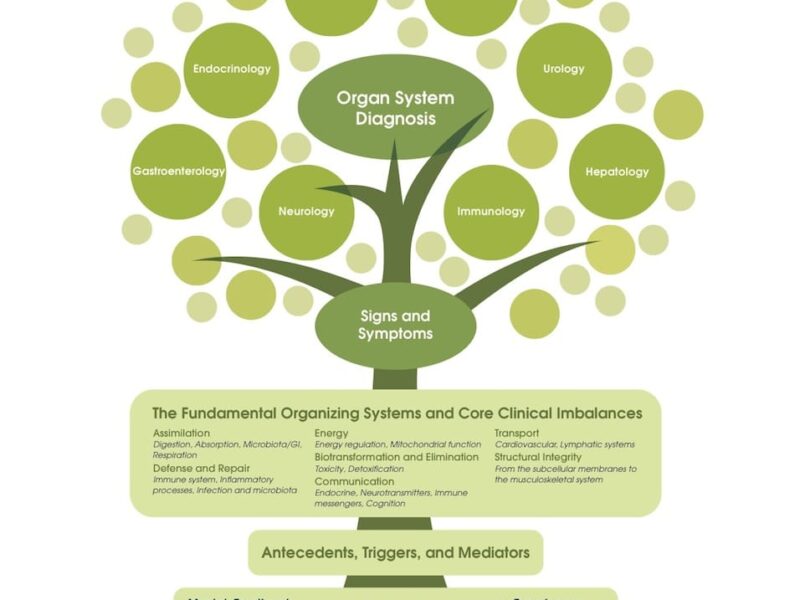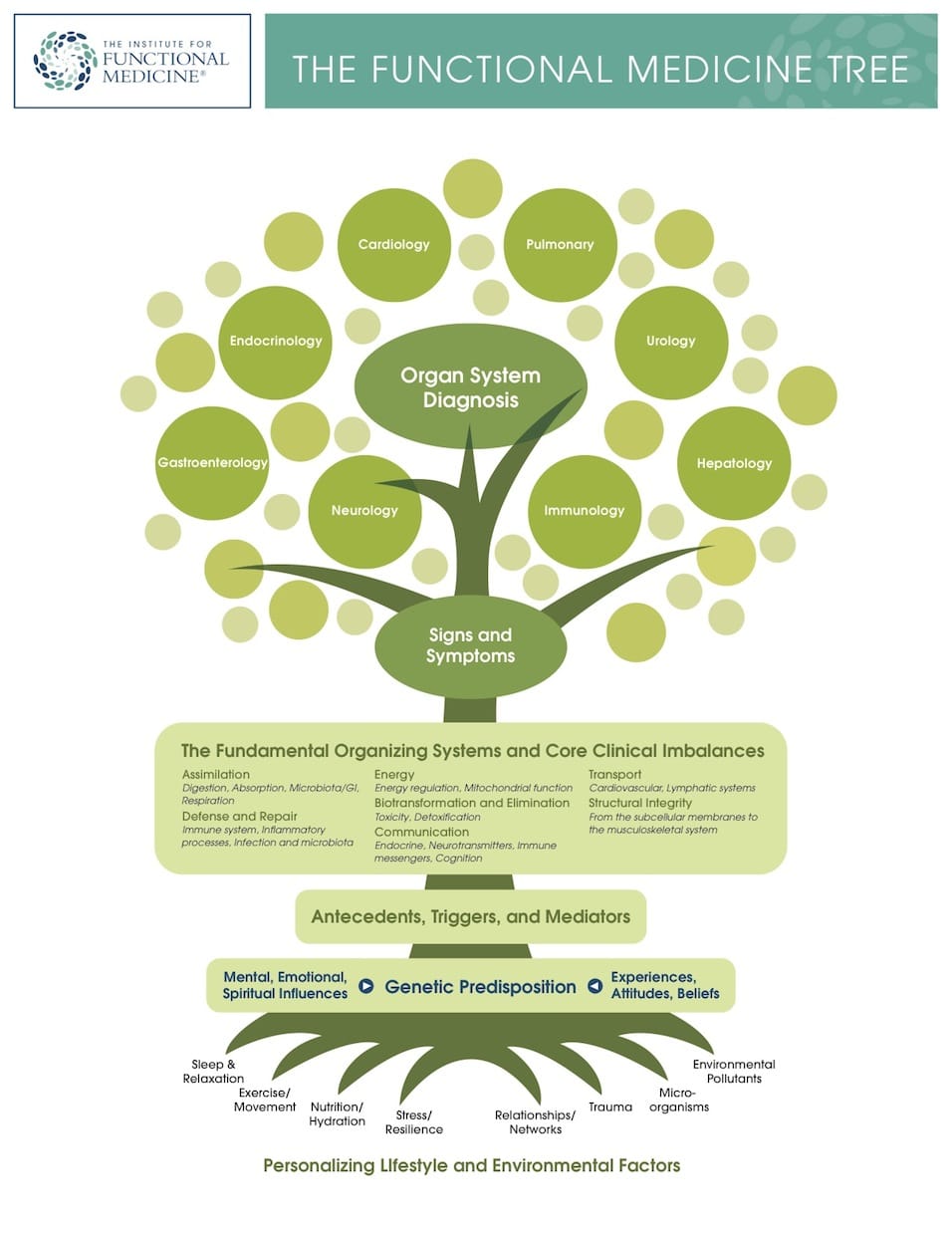Functional Medicine Versus Traditional Doctoring — Part Two

 If you enjoyed Part One in our series about the differences between traditional doctoring and Functional Medicine, you’re going to love today’s post. We here at Restoration Healthcare enjoy a well-reasoned analogy. Take this one for example: A doctor diagnoses disease like a detective investigates crime.
If you enjoyed Part One in our series about the differences between traditional doctoring and Functional Medicine, you’re going to love today’s post. We here at Restoration Healthcare enjoy a well-reasoned analogy. Take this one for example: A doctor diagnoses disease like a detective investigates crime.
An analogy lets us present a new concept by using the blueprint of an older one as a basis for understanding. But even among the best analogies, there are caveats. For instance, traditional doctoring would have the above-mentioned physician concentrate a large percentage of his attention on the disease itself, to the exclusion of the patient’s participation in the issue.
What functional medicine does is focus on the underlying causes of the disease, using a systems-oriented approach that brings both the patient and doctor into a consultative and therapeutic alliance. It’s a sort of “us against them” regimen that undertakes a comforting team approach to alleviate the pain brought about by injury, illness or disease.
Simply put, mainstream medicine employs a disease-centered focus, while functional medicine offers a patient-centered approach that addresses the patient as a whole instead of concentrating on an isolated symptom. Functional medicine means studying lifestyle and environmental factors in order to see how they factor into an ailment or disease.
To do this, Functional Medical practitioners like Dr. Tom Bakman and Dr. Sunny Raleigh incorporate the very latest findings in genetic science and systems biology. As a result, they practice proactive, predictive, personalized medicine that brings you directly into the fray, taking an active role in improving your own health.
That being said, we’ve got another analogy to present for your reading pleasure. Keeping in mind that these literary tools help simplify a description, let’s take the image of a tree to represent the differences between functional medicine and conventional doctoring. The somewhat out-of-date, but still effective illustration below will help us explain further:
As any weekend gardener will tell you, the way to keep a tree healthy is to concentrate on the foundation — the roots and soil. And if the tree becomes spindly or weak, the place to look for symptoms is that same root system and the earth surrounding it.
So instead of just inspecting the brown leaves and dying branches, and then applying a variety of insecticides to those organic appendages, our functional gardener focuses first on the root issue.
Same goes for functional medicine. What we want to explore are the foundational lifestyle habits of the patient. Is he or she getting enough sleep? Exercising on a regular basis? Practicing good nutrition? Handling stress well? How are their primary relationships working out? And don’t forget genetic and hereditary histories.
Instead of exploring the basis for the health issue, traditional physicians look first to the symptoms, and their solution often arrives in the form of a prescription. Unfortunately, this practice of throwing drugs at the problem is most often ineffective and short-lived.
Functional medicine practitioners like the ones here at Restoration Healthcare are painstaking in their research and history-taking, knowing full well that genetics, environment and lifestyle factors are the biggest influences on health. Functional medicine provides assessment, treatment and disease prevention by focusing attention on the patient.
So there you have it — our two-part series on the difference between functional medicine and traditional doctoring. Comments, questions, disagreements? Leave a note below or give us a call anytime at (949) 535-2322.


